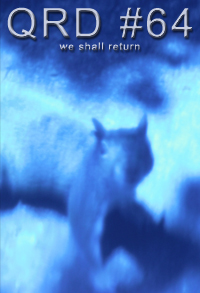
 |
| about
this issue Interviews: Alan Sparhawk Paul Gregory Fruits de Mer Sound in Silence Short Story: The Shards that Float Upstream Essay: Living Art Tour Diary: Plumerai - Mondegreen Videos: Remora - Recent Covers Animated Art: Sun Photos |
 |
 |
 |
 |
 |
 |
 |
|
|
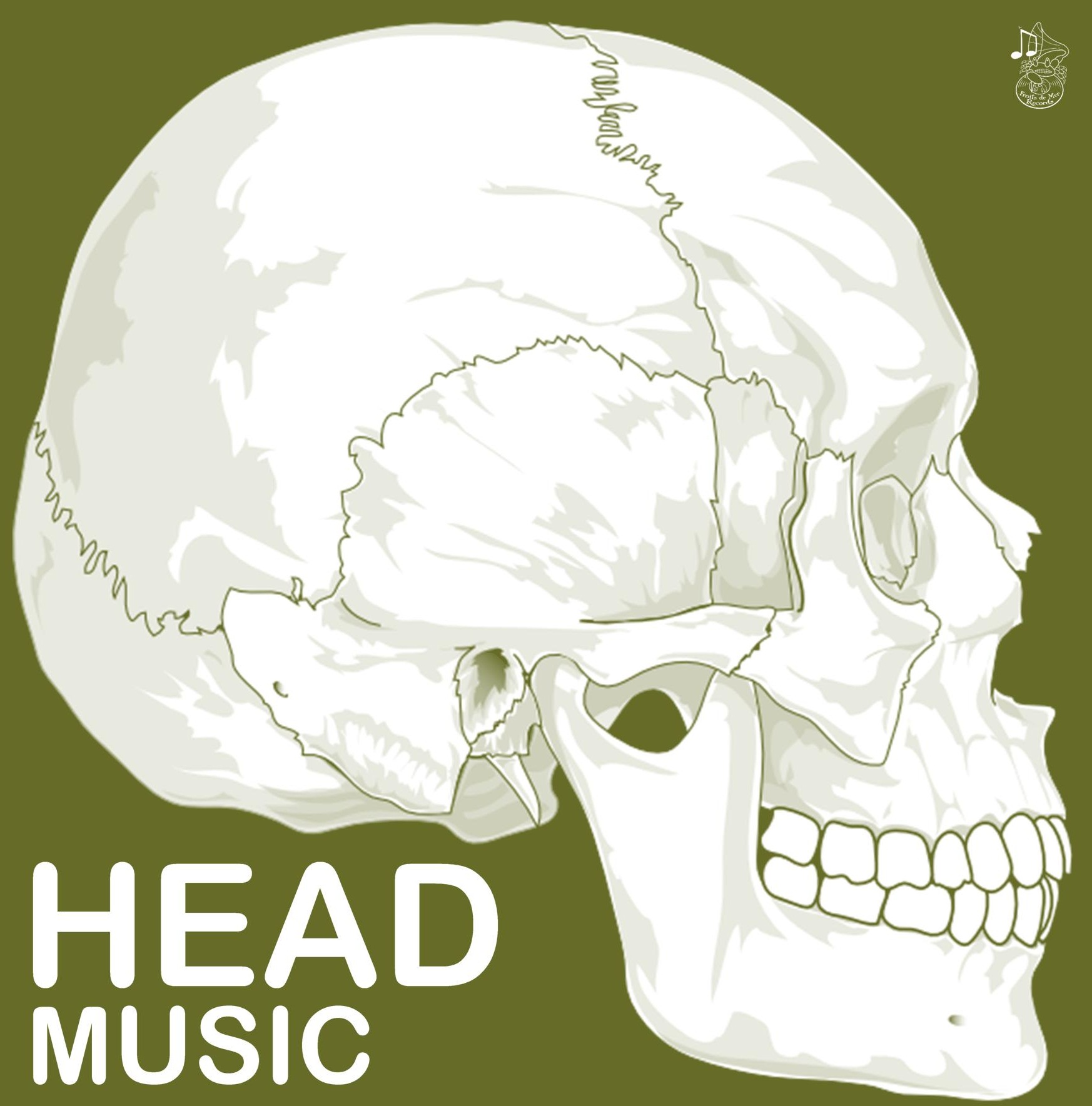 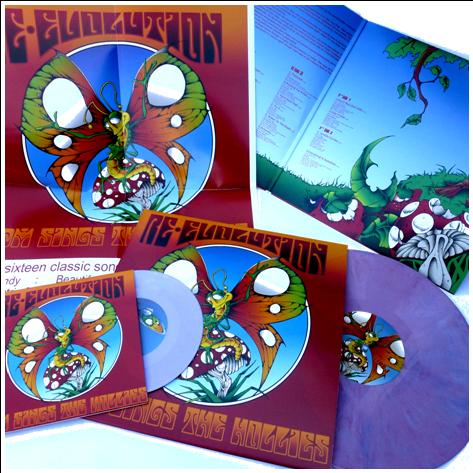 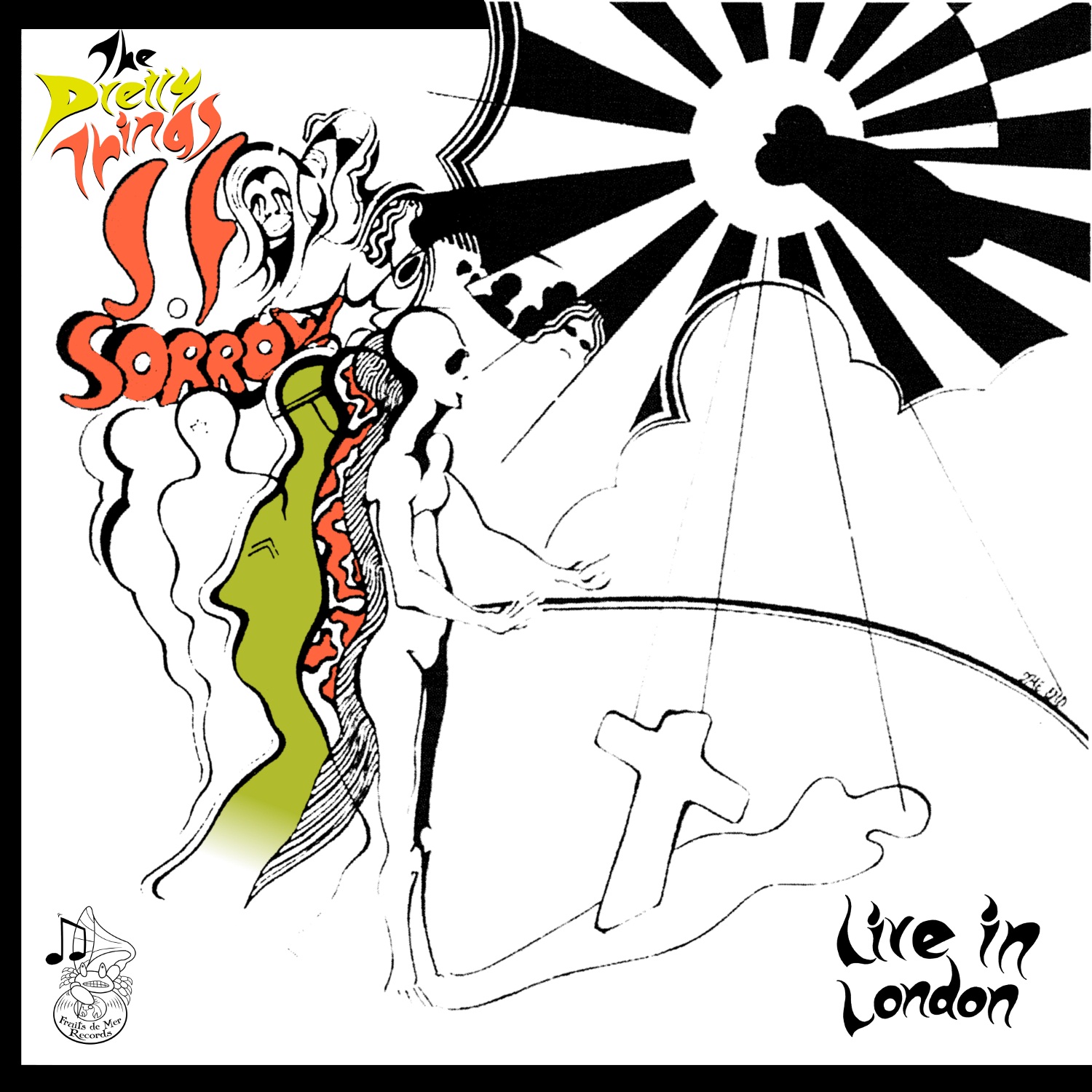 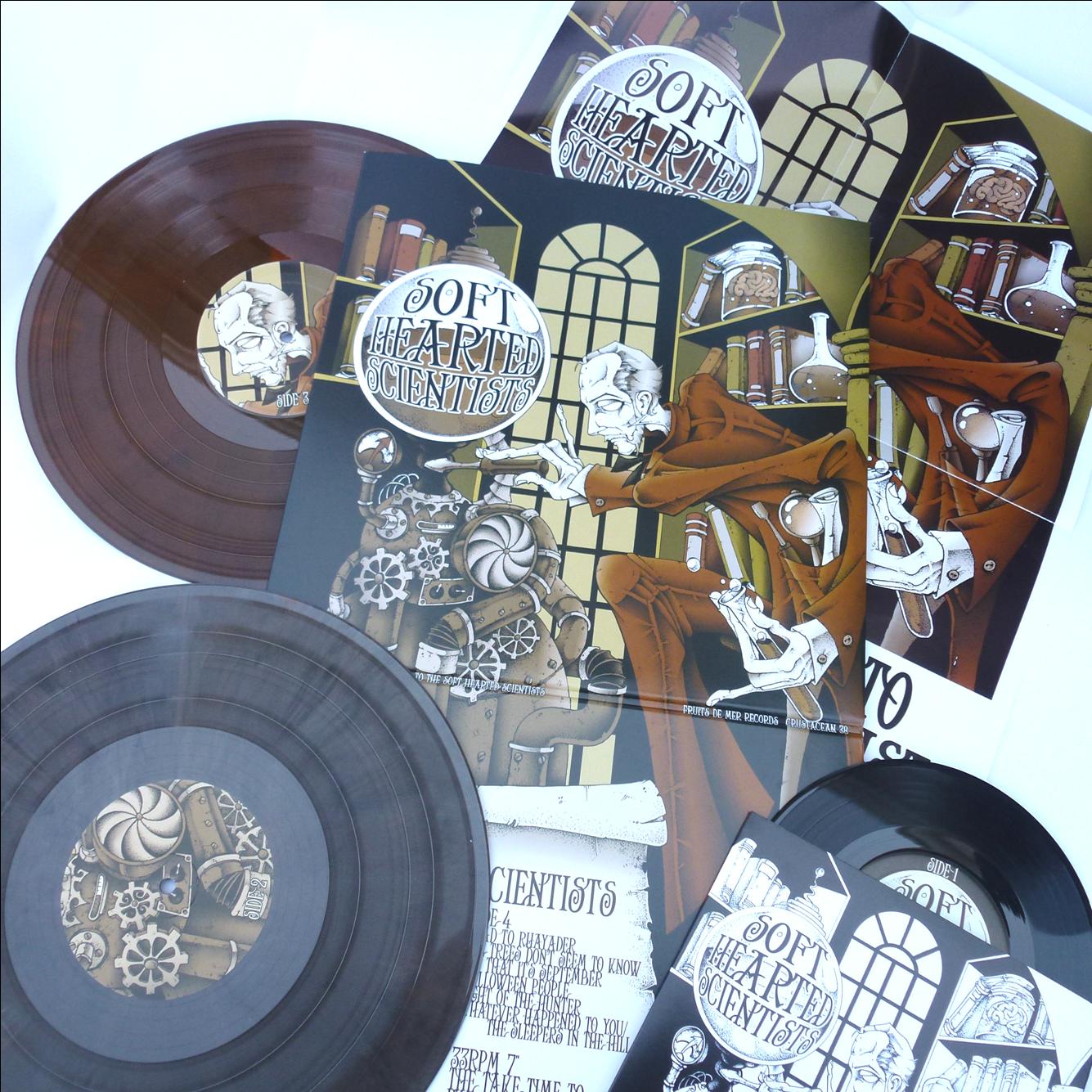 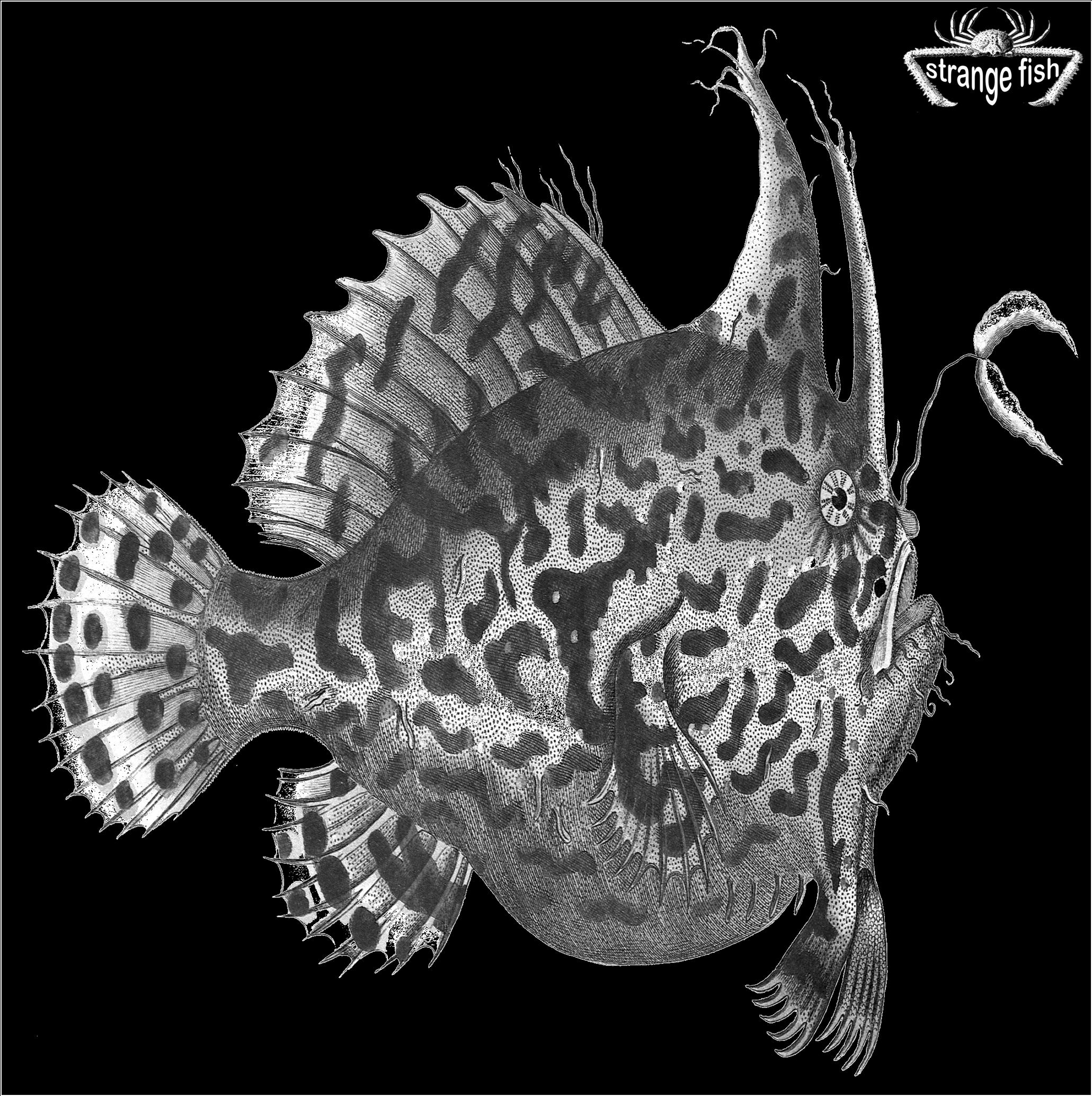 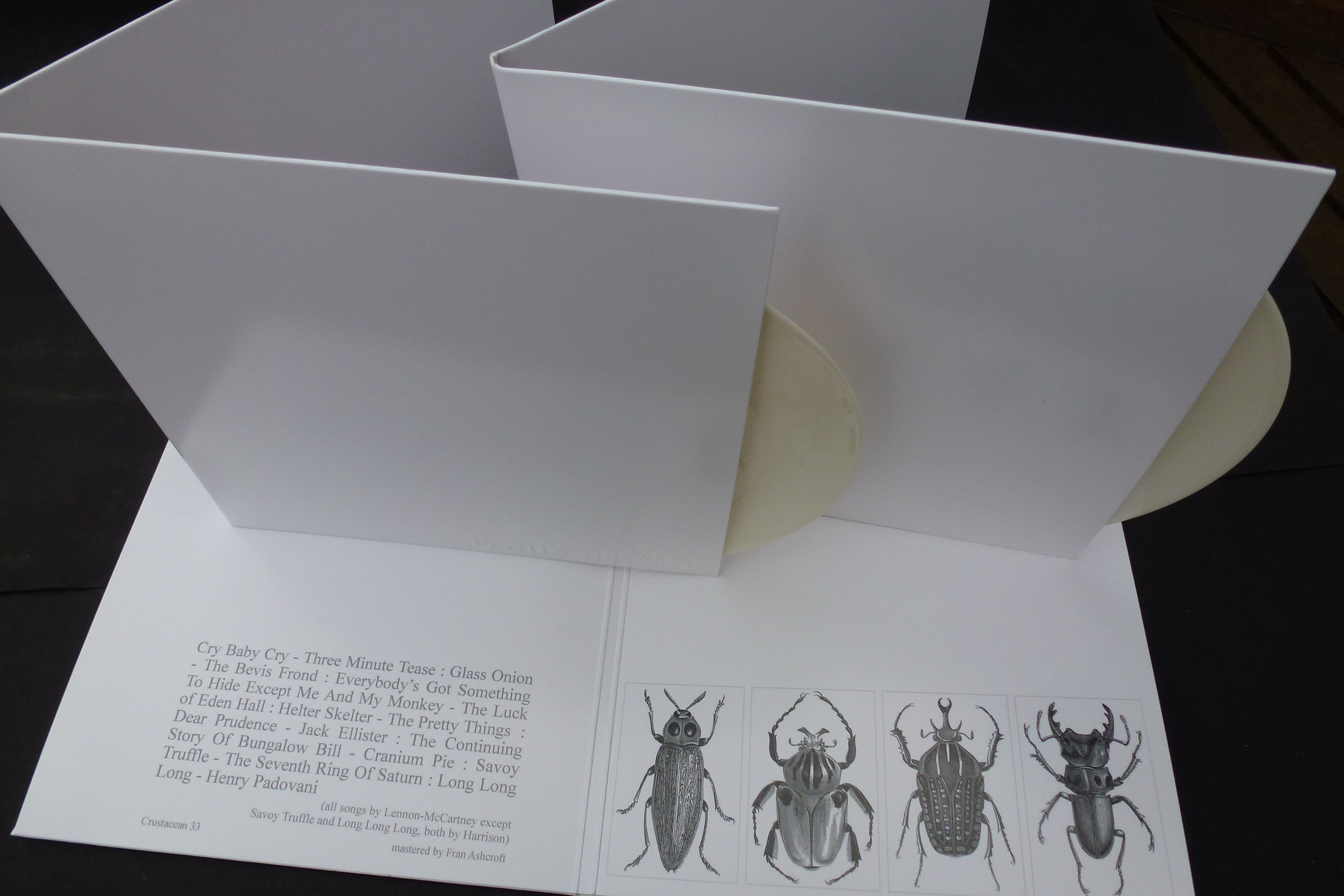             |
June 2013
Label: Fruits de Mer Records
City: leafy Surrey, England
Artists Roster: always one-off deals but artists to-date have included The Pretty Things, The Bevis Frond, nick nicely, Mark Fry, Anton Barbeau, The Chemistry Set, King Penguin, Sendelica, Vibravoid....
Websites: www.fruitsdemerrecords.com
QRD – When & why did you start your label?
Keith – 2008. An old friend, Andy Bracken, was already running a vinyl-only indie label in the USA & we came up with the idea for Fruits de Mer one drunken afternoon in London, I think.
QRD – Where did you get the money to finance your first few releases?
Keith – It’s not that expensive to put out a 7” single, especially when you only press up 300 & print the covers on a photocopier!
QRD – How many releases have you put out?
Keith – Just coming up to 50, mainly 7” singles, but an increasing number of albums.
QRD – How many releases would you like to do a year?
Keith – Too many! Currently I’m putting out 10-12.
QRD – How many hours a week do you work on the label & how many would you like to?
Keith – FAR too many! I’m retired from the real world, so I have lots of time to spare, but it can all become rather obsessive/indulgent, especially as I’ve been running the label solo for the last year or so.
QRD – What are the fun & /or rewarding parts about running a label?
Keith – Seeing a germ of an idea become a vinyl reality, working with an artist I’ve long admired, hearing a brand new track & thinking, “I’ve GOT to release that,” getting such great feedback from people who buy the records.
QRD – How have your motivations for having a label changed?
Keith – Originally, just the idea of running a record label was motivation in itself; now I look to make each batch of releases special in some way - distinct, different from & better than the last.
QRD – What do you feel is the biggest waste of your time running the label?
Keith – Everything just eats time. But it’s my own fault by cutting off more than I can chew. The new set of albums - “strange fish” - compromises 6 LPs, a CD, & 29 artists - bloody ridiculous for a one-man label.
QRD – What are some labels you admire or feel a kinship to?
Keith – Any label that’s genuinely trying to make it on its own. Perhaps the ultimate label for me is, or was, the FAX label, which was run by the late Pete Namlook. (Geoff Barton, writing in Classic Rock Magazine, once said, “Remember Island, Charisma... think FdM” - now that’s the kind of company I can only dream of).
QRD – What other work experiences prepared you to have a label?
Keith – I worked in the UK music press at times back in the 80s & 90s, but that just fed my obsessive interest in music, I don’t think it helped prepare me for running a record label (although it does explain why I get such a kick out of seeing a Fruits de Mer release reviewed in the press).
QRD – What makes you label special & unique?
Keith – It’s very much your typical “label of love” label, so I couldn’t claim it’s unique - but specializing in new interpretations of classic/long-lost songs from the 60s/early 70s is a bit different, as are the quirky add-ons I include with some releases (3D glasses, posters, joss-sticks, plant seeds, fortune-telling fish, etc.) & the members club for people who’ve got the Fruits de Mer bug big time is unusual.
QRD – How has your physical location affected your label?
Keith – I don’t think it does - except that the UK & Europe still have pretty healthy vinyl scenes going on.
QRD – Do you enjoy music as much now as you used to & how has running a label effected how you listen to/hear music?
Keith – I probably listen & buy less than I used to purely for myself - but I received 60 hours of music to listen to for the “strange fish” releases, so I guess that overall I listen to far more, but perhaps with a more critical ear.
QRD – How do you find out about new artists for your label?
Keith – Bands approach me having seen or heard a Fruits de Mer release, or having seen an ad, or they’ve been pointed in my direction by another artist. Also, shops that stock FdM & fans of the label suggest artists to me & I check them out, or I come across a track on Facebook or YouTube.
QRD – How do most fans find out about your label?
Keith – Reviews & ads (Record Collector Magazine & Shindig! work best for me).
QRD – What’s been your biggest selling release & why do you think it was?
Keith – “The White EP” - a double 7” EP covering tracks from The Beatles’ double LP.
The Beatles still sell, there were some great artists on the EPs, including The Pretty Things, & the 7” miniature version of the Beatles’ sleeve - even down to “Fruits de Mer” embossing - & the white vinyl, all looked pretty cool, although I say it myself!
QRD – What release that you’ve done was the most important & special to you personally?
Keith – Head Music - a double LP of krautrock covers - was the first album I’d pulled together myself, including the design. Working with The Pretty Things is special too - & being able to adapt the original artwork to “S.F. Sorrow” for a 7” release by the band was unbelievable.
QRD – What are some things that make you want to work with a band?
Keith – Loving the music, getting a good feeling from dealing with them from day one.
QRD – What are some things that would make you stop working with a band?
Keith – It very rarely happens, but I just don’t have the time or energy to deal with anyone who is too high maintenance, or thinks that a label like Fruits de Mer is a stepping stone to global success.
QRD – What is the thing all releases on your label have in common?
Keith – I love them all.
QRD – How involved are you with a band for acting as a producer as far as hearing demo ideas or selecting tracks to be on a release or mixing & mastering?
Keith – It runs the full spectrum from hearing a fully formed WAV track & just wanting to release it, to suggesting to the artist a possible song to cover & bouncing ideas around over the months to create a great new version of it. I get all tracks mastered for vinyl by one guy - Fran Ahcroft at Happy Beat Sudios in Liverpool - to ensure a consistency.
QRD – How involved do you like to be in the artwork design for a release?
Keith – Again, it runs from the artist producing everything as PDFs, to me putting the design together myself, to getting one of the brilliant designers I know to do it. The only consistency is having the logo on the back.
QRD – How long is it from when an artist delivers an album to you until release date & why?
Keith – Albums tend to be compilations, so it can take up to a year from hearing the first tracks to delivering the final vinyl - but more often it will be about two months from me receiving WAVs to delivering the records
QRD – If a band breaks up between the recording of a release & the release date, how does that effect what you do?
Keith – It’s entirely up to the band. A couple of years ago, I was working on an album with a brilliant Scandanavian band. Tragically, one of the band members died & the group didn’t have the heart to carry on - the music remains unreleased.
QRD – What do you wish bands on your label would do?
Keith – Some artists do a great job of promoting their releases to their fans, but maybe not all of them! But promoting Fruits de Mer is my job, so I can’t complain
QRD – What’s a record you’d like to put out that you’ll never be able to?
Keith – I’ll always regret not being able to put out the LP by that Scandanavian band.
QRD – If you really like a band, but aren’t sure you could sell many copies of their record; what do you do?
Keith – Press less. I always say that if I love the music, I’ll find an excuse to put it out.
QRD – How is financing of a release split between artists & the label?
Keith – Artists pay for their own recording, I pay for everything else.
QRD – How do you split profits from a release between artists & your label?
Keith – Singles do no more than break-even, but I split any profits from albums 50/50 with the artists. The one thing they do get is some vinyl to sell, or cherish.
QRD – Do you have written contracts with your bands or handshake deals?
Keith – No written contracts with anyone, it’s all done on trust.
QRD – Do you take a cut of a band’s publishing?
Keith – Most Fruits de Mer releases are covers of old songs, so I take out an MCPS license to ensure the original songwritiers get what they’re entitled to.
QRD – How important is it to you to have touring acts on your roster & what do you do to encourage it?
Keith – It all helps spread the word & of course I get a real buzz out of seeing a “Fruits de Mer” act on stage, but attending gigs doesn’t necessarily translate into buying vinyl, so it’s not a factor in me determining whether to put out a specific record or not.
QRD – Do you handle promotions in house or hire out & why?
Keith – Almost always all done by myself - I love doing the promotion side; I think it means a bit more because it comes from me & I really do believe in whatever I’m promoting.
QRD – How do you maintain contact with your fanbase?
Keith – One-on-one emails, regular mailings, Facebook, the Fruits de Mer website.
QRD – How big of a staff do you have & how big of one do you need?
Keith – It’s just me, & my wife Liz whenever we have a new release to post out. But I rely on Fran, my mastering guy, plus Nick Leese who runs the excellent Heyday Mail Order & handles sales to individuals outside the UK, & Clear Spot distribution, who deal with record shops outside the UK - they are all brilliant (especially Liz, of course).
QRD – What do you do to build relationships with record stores?
Keith – I work with a handful of UK shops that have supported the label from the early days. But most shops aren’t interested in a label that isn’t represented by one of the big distributors & doesn’t offer sale or return - & I’m not going down that route - too much risk, too much grief & I don’t think it would do anything to improve the quality of the actual releases.
QRD – What do you do to build relationships with radio stations?
Keith – Send them promos. I’m very lucky that a number of specialist station DJs have really got behind the label & a few DJs on BBC such as Stuart Maconie, Gideon Coe, & Mark Radcliffe occasionally give new releases some airplay - which is pretty amazing given how much mainstream/major label material they receive each week.
QRD – What do you do to build relationships with magazines & websites, & with bloggers?
Keith – Again, I send them promo CDs & all the background information I can come up with. A few of the CDs find their way onto Ebay, which is frustrating, but most of them get listened to.
QRD – Do you view advertisements as a way to generate interest & revenue or more as a way to financially support magazines & websites you like?
Keith – With the possible exception of Record Collector in the early days, when no one had heard of the label, I don’t think any ads really “pay their way”, but I DO think it’s important to support like-minded magazines & websites where I can - without them, most independent labels would be screwed in the end. That said, I certainly don’t expect a review just because I’ve placed an ad.
QRD – What is the job of your distributors?
Keith – Clear Spot handle everything for me with shops & dealers outside the UK, Heyday Mail Order do the same with individual buyers who approach me. Both are highly recommended.
QRD – How do you decide how big the initial pressing of a release should be?
Keith – I have built up a bit of experience now & I set a pressing with the aim of selling out within 4-6 weeks of any new release going on sale. But the pressing plant can under or over deliver, which can ruin even the best laid plans (& my plans are never that well planned).
QRD – What percentage of a pressing do you use for promotions?
Keith – Very few - I’d sooner send out CDs.
QRD – Do you sell merchandise other than the music (t-shirts, etc.)?
Keith – Yes, a few t-shirts, & the one-size-fits-all Fruits de Mer scarf.
QRD – Do you sell music that is not on your label?
Keith – No, but I’m always happy to tell Fruits de Mer fans about new releases by artists that have worked with FdM - I owe that to the artists.
QRD – How has running a label effected your own artistic career?
Keith – I don’t have one (or any artistic talent, for that matter).
QRD – What do you do to try to build a sense of community within your roster?
Keith – I think that’s what Fruits de Mer is all about - a few people have described it as being “like an extended family”, but without the mad uncle. I try to keep everything light-hearted - not too much of the heavy sell - & the Fruits de Mer members club is there to say “thank you” to people who are kind enough to support the label; members get first call on any special pressings, signed items, & a year-end “exclusive” freebie of some kind (last year it was a double CD, this year it will be vinyl all the way).
QRD – What’s your most common conversation with bands as far as balancing artistic integrity & financial viability?
Keith – I don’t have those sorts of conversations - the artists know there’s little or no money in “private pressing” vinyl, but they love what they’re doing, like the idea of getting their music out on vinyl & know I’m not going to rip anyone off.
QRD – How often do you look at your “return on investment” & adjust your business model?
Keith – Not often - if I was trying to make money out this, I wouldn’t be doing it. I make sure that I don’t end up far out of pocket & there are far more expensive habits than running a little record label. The safest options would be to release less records & stop advertising them - but that wouldn’t be much fun, would it?
QRD – Do you worry about search engine optimization & website traffic?
Keith – No. I worry about having a crap website.
QRD – What have you done to cut costs over the years?
Keith – Nothing.
QRD – Do you think the album format is dead?
Keith – Not at all. Not unless artists think it is. Buying a 2 minute download, sticking it on an iPod, listening to it twice & then forgetting about it isn’t my idea of music; at the other extreme, one of the problems with CDs is that they are too long for most artists - they pad them out to fill 78 minutes, when 40 minutes of music would be much better.
QRD – Do you think the return of vinyl & cassettes is a fad?
Keith – The death of vinyl was reported by the major record labels & high street shops when it was still in its prime. They saw CDs as a lower cost, higher margin alternative & they could sell us everything we already had all over again. Vinyl didn’t go away - the record labels & the shops did.
QRD – Is it important to have physical releases over digital ones or does it not matter?
Keith – Of course - digital releases don’t exist.
QRD – What do you think of ultra-limited runs of releases (less than 100 discs)?
Keith – Great - if the artists are happy with that.
QRD – How much content do you feel should be available free to fans?
Keith – That’s entirely down to the artists - if they want to give everything away, that’s up to them. In the short term it won’t affect a label like Fruits de Mer, as a download is no substitute for the real thing; but in time, if people get out of the habit of paying for a physical product, it will be gone forever.
QRD – What do you do about people distributing your music without financial compensation (piracy & file trading)?
Keith – Wankers. I’m not losing sales, but they ARE ripping off the artists - it should be down to the artist to determine whether they want their music to be freely available.
QRD – What changes in things would cause you to stop your label?
Keith – If people stop buying the records.
QRD – What would you suggest to someone starting a label today?
Keith – Do it! Find a couple of enthusiastic artists you love, do a split 7” single with them, press up 200-300 & have some fun.
QRD – Music has had different hotspots on the internet over the years (newsgroups, MP3.com, MySpace, LastFM), but with MySpace’s decline, what do you see as the place where “normal” people go to find out about & get excited by new music?
Keith – Facebook groups & YouTube seem to be the best meeting places/sources of new music these days.
QRD – In 20 years what do you think/hope your label will be known/remembered for?
Keith – A few honorary mentions in the Record Collector Rare Records Guide would be nice - as would a few kids around the world having their dads’ collections handed down to them & wondering what the hell was going on 20 years earlier.
